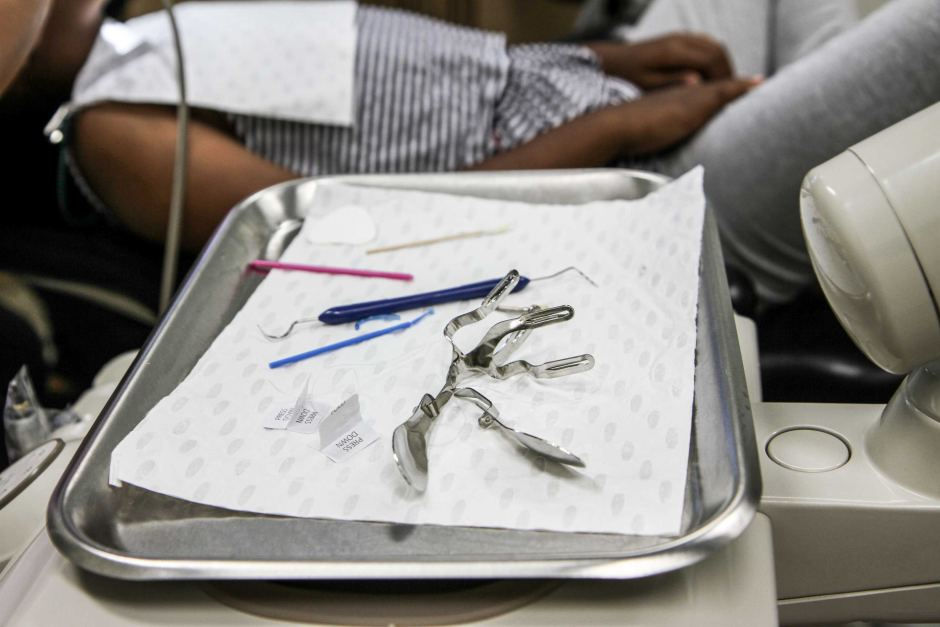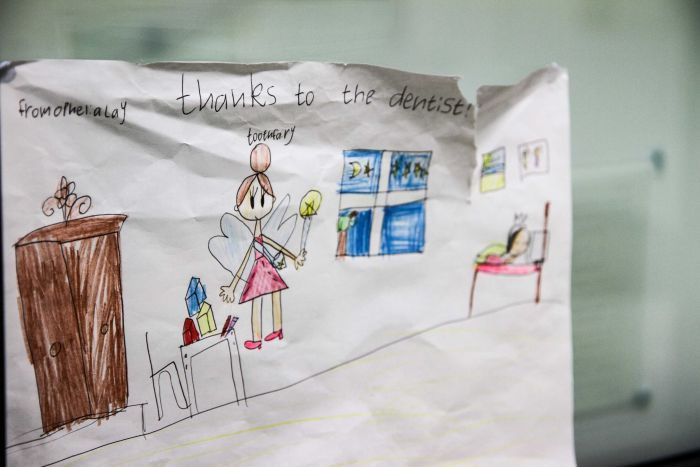Dentists are fed up with doing tooth extractions on toddlers, and sugar is to blame
- Guy Rasmussen

- Feb 15, 2018
- 3 min read

One in three children aged between five and six years old have dental decay.
Australian dentists are becoming increasingly frustrated with having to extract multiple teeth from children as young as two years old, and the consensus is that sugar is to blame.
At the Royal Dental Hospital of Melbourne, Sophie Beaumont is preparing for an afternoon of dental surgery. The majority of her patients are young children requiring general anaesthetic procedures.
"It's not uncommon to be taking up to 12 or 14 teeth out from very little children, even from the ages of three and four," Dr Beaumont says.
The National Child Oral Health Study shows dental decay is the most prevalent oral disease in Australian children. One in three children between the ages of five and six have symptoms of decay in their baby teeth.
At North Richmond Community Health, oral health therapist Thanh Le blames high sugar diets.
"A lot of children as young as one-and-a-half or two years old are getting dental decay, whether it's from bottle feeding at night time or from juices on a regular basis," Ms Le says.
The National Child Oral Health Study shows dental decay is the most prevalent oral disease in Australian children. One in three children between the ages of five and six have symptoms of decay in their baby teeth.
At North Richmond Community Health, oral health therapist Thanh Le blames high sugar diets.
"A lot of children as young as one-and-a-half or two years old are getting dental decay, whether it's from bottle feeding at night time or from juices on a regular basis," Ms Le says.
Rooney Lai, another oral health therapist at the same clinic, becomes emotional when describing the impacts of sugar on young children's teeth.
"There's nothing like a three-year-old coming in and they've only just had their brand new set of teeth, the whole 20. And they have decay in more than half already," she says.
"I think it's sad to see that. They're at the age where they don't understand a lot and they say, 'Why are you doing this to me?'"
Back at the Royal Dental Hospital, Dr Beaumont also points the finger at sugar.
"I think dietary factors are hugely important … there's a lot more hidden sugars in foods and drinks that we consume," she says.
"A lot of those foods are marketed very cleverly as being healthy, and they have huge amounts of sugar in them.
"I can't stress enough the need to stick to tap water or plain milk and just avoid sugary and sweet things, especially between meal times."
Distressing for both child and parent
Giving a toddler a general anaesthetic and operating on them can be extremely distressing for both the child and their parents, Dr Beaumont says.

"By the time they reach us there's been many sleepless nights at home. They've lost their appetite, they're not performing at school," she says.
"Everyone's usually in a state of mild panic, and often the general anaesthetic needs to be done fairly quickly as an emergency."
The problems don't end there.
Media player: "Space" to play, "M" to mute, "left" and "right" to seek.
AUDIO: Listen to the full story (Life Matters)
"The most unfortunate part of this is those baby teeth, ideally we like them to stay in the mouth until the permanent teeth come through because they help to retain the space for those adult teeth," Dr Beaumont says.
There are also flow-on effects for children who have teeth removed, both developmentally and socially, as their mouths remain gummy until their adult teeth come through.
"They can't speak well, they can't communicate properly, they get embarrassed at school because they look different to some of their friends," Ms Le explains.
Early intervention is key
North Richmond Community Health is tackling dental decay in children through education and preventative treatment.

That goes against traditional wisdom in dentistry, according to clinic manager Rachel Martin.
"The practice of dentistry has always, historically, been a surgical approach," she says.
"When you go into a doctor to have a consultation, you spend a lot of time talking — people don't expect that when they come into the dentist. They sit down and expect to have something done.
"We're trying to change that."
Oral health educators from the clinic spend time in kindergartens, primary schools and even with expectant mothers.
Dr Martin says the clinic has also adopted a preventative clinical approach as well, with oral health therapists identifying and treating the dental lesions that often prefigure decay in order to avoid extractions later.
She is confident the approach is working.
"We actually very, very rarely refer a child for a general anaesthetic now because of the way we've set things up," she says.



Comments